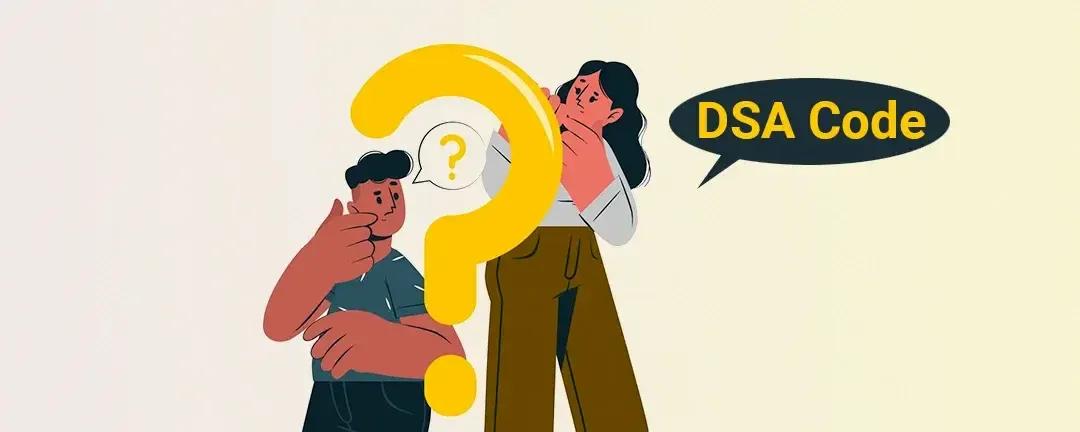Know All About DSA Code
Explanation of DSA Code
The term "DSA code" pops up frequently in the financial world, but what exactly does it mean? This blog post dives into everything you need to know about DSA codes, from their definition to how to obtain one.
What is a DSA Code?
DSA stands for Direct Selling Agent. A DSA code is a unique identification number assigned to these agents. It acts as a reference point for banks and financial institutions, allowing them to track loan applications and approvals back to specific DSAs. This system helps maintain transparency and ensures proper credit is given to the agent for their efforts.
These agents play a crucial role in:
- Promoting financial products and services
- Identifying and connecting with potential customers
- Assisting with loan applications and processing
DSA Code Full Form
The full form of DSA code is Direct Selling Agent Code
DSA Code for Loan: While DSAs can promote various financial products, they're commonly associated with loan applications. The DSA code helps the institution attribute the application to the right agent who facilitated the process.
How to Get a DSA Code
DSA codes aren't something you can apply for online directly. Typically, you'd need to partner with a bank or Non-Banking Financial Company (NBFC) as a DSA. These institutions have their own registration processes, which might involve background checks and training. Once you successfully complete the program, you'll be issued a DSA code.
Here are some resources to learn more about becoming a DSA:
- Banks and NBFCs often have dedicated sections on their websites outlining the DSA registration process.
- You can find information about DSA recruitment through financial consultancies or wealth management firms.
Remember, the specific requirements for obtaining a DSA code will vary depending on the financial institution you choose to partner with.
The Importance of DSA Codes
DSA codes play a crucial role in the financial services industry by:
- Ensuring Transparency: They help track loan applications and ensure proper credit is given to the DSA who brought in the business.
- Promoting Ethical Practices: By linking applications to specific agents, DSA codes hold them accountable for ethical conduct during the loan application process.
- Facilitating Commission Tracking: Financial institutions can use DSA codes to track individual agent performance and distribute commissions accordingly.
We hope this blog has shed light on the world of DSA codes. If you're interested in a career as a Direct Selling Agent, reach out to your preferred bank or NBFC to learn more about their specific DSA program!
